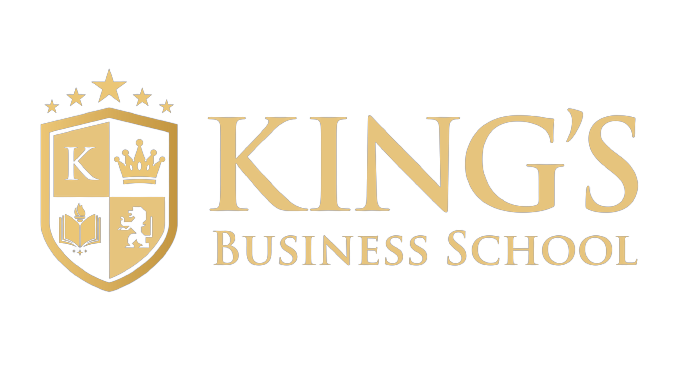Effective leadership and teamwork skills play a vital role in various aspects of life, including academics, professional careers, and personal growth. As undergraduates, developing these skills early on can significantly impact your future endeavours and set you apart from your peers.
In this blog, we will explore 11 strategies that can enhance your leadership and teamwork abilities. These strategies will equip you with the tools and mindset needed to excel as a leader and foster a collaborative environment. So, let’s delve into these key strategies that will unlock your leadership potential and help you build strong, cohesive teams.
Why are leadership and teamwork skills necessary?
Leadership and teamwork skills are essential in management for several reasons. Firstly, effective leadership guides and inspires teams to achieve organisational goals. Skilled leaders provide clear direction, make sound decisions, and motivate team members to perform their best. They communicate effectively, delegate tasks, and resolve conflicts, creating a harmonious and productive work environment.
Additionally, leadership skills foster innovation and drive change, allowing organisations to adapt to market dynamics and position themselves for growth and success. Similarly, teamwork skills are crucial as they enable collaboration and synergy among team members.
A cohesive team leverages diverse perspectives, skills, and strengths to tackle challenges more effectively. By promoting open communication, trust, and cooperation, teamwork enhances creativity, problem-solving, and collective decision-making. It also boosts employee engagement and job satisfaction by valuing individuals’ contributions. Ultimately, strong teamwork skills contribute to improved productivity, efficiency, and the achievement of organisational objectives.
Now, let’s explore the 11 strategies for effective leadership and teamwork that can transform your undergraduate journey.
1. Clear Communication:
Effective leadership and teamwork rely on clear communication. Communicating goals, expectations, and feedback clearly ensures that team members understand their roles and responsibilities. This strategy fosters transparency, minimises misunderstandings, and promotes a collaborative environment where everyone is on the same page.
2. Active Listening:
Active listening is a valuable skill for leaders and team members alike. By attentively listening to others’ ideas, concerns, and feedback, leaders demonstrate respect and create an inclusive environment. Active listening promotes effective problem-solving, creativity, and trust among team members.
3. Empowering Team Members:
Empowering team members involves delegating responsibilities, providing autonomy, and trusting their capabilities. This strategy encourages individual growth, fosters a sense of ownership and accountability, and boosts motivation. Empowered team members are more engaged, take initiative, and contribute their best efforts, leading to increased productivity and innovation.
4. Collaboration:
It is essential for effective teamwork. Collaboration enhances creativity, leverages collective intelligence, and encourages shared ownership of outcomes. It fosters a supportive environment where team members can learn from each other, solve complex problems, and achieve common goals.
5. Building Trust:
Trust is the foundation of successful teamwork and leadership. Leaders build trust by being reliable, honest, and transparent. Trusting team members fosters an environment where individuals feel safe to take risks, share ideas, and learn from mistakes.
6. Conflict Resolution:
Conflict is a natural part of any team, but effective leaders know how to manage and resolve conflicts constructively. By addressing conflicts promptly and respectfully, leaders prevent conflicts from escalating and damaging team morale. Constructive conflict resolution promotes understanding, strengthens relationships, and encourages creative problem-solving.
7. Goal Setting:
Setting clear and achievable goals is vital for effective leadership and teamwork. Clearly defined goals provide direction, focus efforts, and align team members towards a common purpose. Goal setting enhances motivation, promotes accountability, and allows teams to track progress. It enables teams to prioritise tasks, make informed decisions, and celebrate milestones, fostering a sense of achievement and fulfilment.
8. Continuous Learning and Development:
Effective leaders and teams embrace a culture of continuous learning and development. Encouraging ongoing skill enhancement and knowledge sharing benefits individuals and the team as a whole. Continuous learning fosters adaptability, innovation, and growth mindset. It improves individual and team performance, increases confidence, and enhances problem-solving abilities.
9. Recognizing and Appreciating Contributions:
Recognizing and appreciating team members’ contributions is essential for motivation and team morale. Leaders should acknowledge and celebrate achievements, milestones, and efforts regularly. Recognizing contributions boosts self-esteem, reinforces positive behaviours, and strengthens team spirit. It creates a positive work environment where team members feel valued, increasing job satisfaction and overall team performance.
10. Effective Time Management:
Effective time management is crucial for leadership and teamwork. Leaders should help team members prioritise tasks, set deadlines, and manage their time efficiently. Good time management ensures that projects are completed on schedule, reduces stress, and improves productivity. It enables teams to allocate resources effectively and achieve optimal results.
11. Flexibility and Adaptability:
Leaders and teams should embrace flexibility and adaptability to thrive in dynamic environments. Being open to change, embracing new ideas, and adapting to unforeseen circumstances are essential for success. Flexibility promotes agility, resilience, and innovation. It enables teams to navigate challenges, seize opportunities, and stay ahead in a rapidly changing world.
In today’s fast-paced and competitive business environment, possessing effective leadership and teamwork skills is crucial for achieving success in diverse industries. King’s Business School provides a selection of courses designed to cultivate and enhance these essential skills. Let’s examine how the following courses align with strategies for effective leadership and teamwork:
MSc Healthcare Management (Top-up)
The program provides healthcare professionals with the essential skills and knowledge to excel in leadership roles within the healthcare sector. This program focuses on developing effective leadership strategies, managing people and finances in healthcare settings, and understanding healthcare policies and strategies. Through research methods and a dissertation, students gain the expertise needed to drive change and lead healthcare organisations towards improved patient outcomes and quality of care.
Modules:
- Healthcare Leadership
- Managing People in Health and Social Care
- Managing Finance in Health and Social Care
- Healthcare Strategies and Policies
- Leading Change in Healthcare
- Research Methods for Healthcare Professionals
- Dissertation
MSc in Accounting and Finance (Top-up)
The MSc in Accounting and Finance program is designed to enhance the financial management and strategic decision-making skills of finance professionals. By developing expertise in these areas, students are equipped to effectively communicate financial information, analyse financial data, and make informed decisions to drive organisational success.
Modules:
- Online MSc in Accounting and Finance Modules
- Investment Analysis (20 credits)
- Corporate Reporting (20 credits)
- Global Finance and Strategy (20 credits)
- Strategic Financial Management (20 credits)
- Strategic Audit (20 credits)
- Business Research Methods (20 credits)
- Consultancy Project Report (60 credits)
MSc Project Management (Top-up)
The MSc Project Management program focuses on equipping professionals with the necessary skills to successfully plan, execute, and lead projects in diverse industries. Our students develop the expertise to manage resources, mitigate risks, and deliver projects on time and within budget. This program emphasises the importance of effective leadership and teamwork in project management.
Modules:
- MSc Project Management Modules
- Planning, Controlling and Leading a Project (30 credits)
- Procurement Risk and Contract Management (30 credits)
- Advanced Project and Logistics Management (20 credits)
- Operations and Information Management for Project Managers (20 credits)
- Advanced Research Methods (20 credits)
- Consultancy Project Report (60 credits)
MSc Human Resource Management (Top-up)
The MSc Human Resource Management program is designed for HR professionals seeking to enhance their strategic and leadership capabilities. Our students are equipped to drive organisational success through effective people management, leadership, and teamwork.
Modules:
- Human Resource Management Master’s Degree Modules:
- Strategic Human Resource Management (20 credits)
- Engagement of Employees and Organisational Learning (20 credits)
- Leadership Development and Performance Management (20 credits)
- Global Resourcing, Talent and Reward Management (20 credits)
- Managing Employment Relations and Employment Law (20 credits)
- Business Research Methods (20 credits)
- Consultancy Project Report (60 credits)
By enrolling in these courses at King’s Business School, you will have the opportunity to strengthen and refine your leadership and teamwork skills within your respective fields. The programs provide a comprehensive understanding of effective leadership practices and offer practical insights into cultivating collaborative work environments. The knowledge and skills acquired through these courses will empower you to excel as a leader and make valuable contributions to the success of your organisation.





